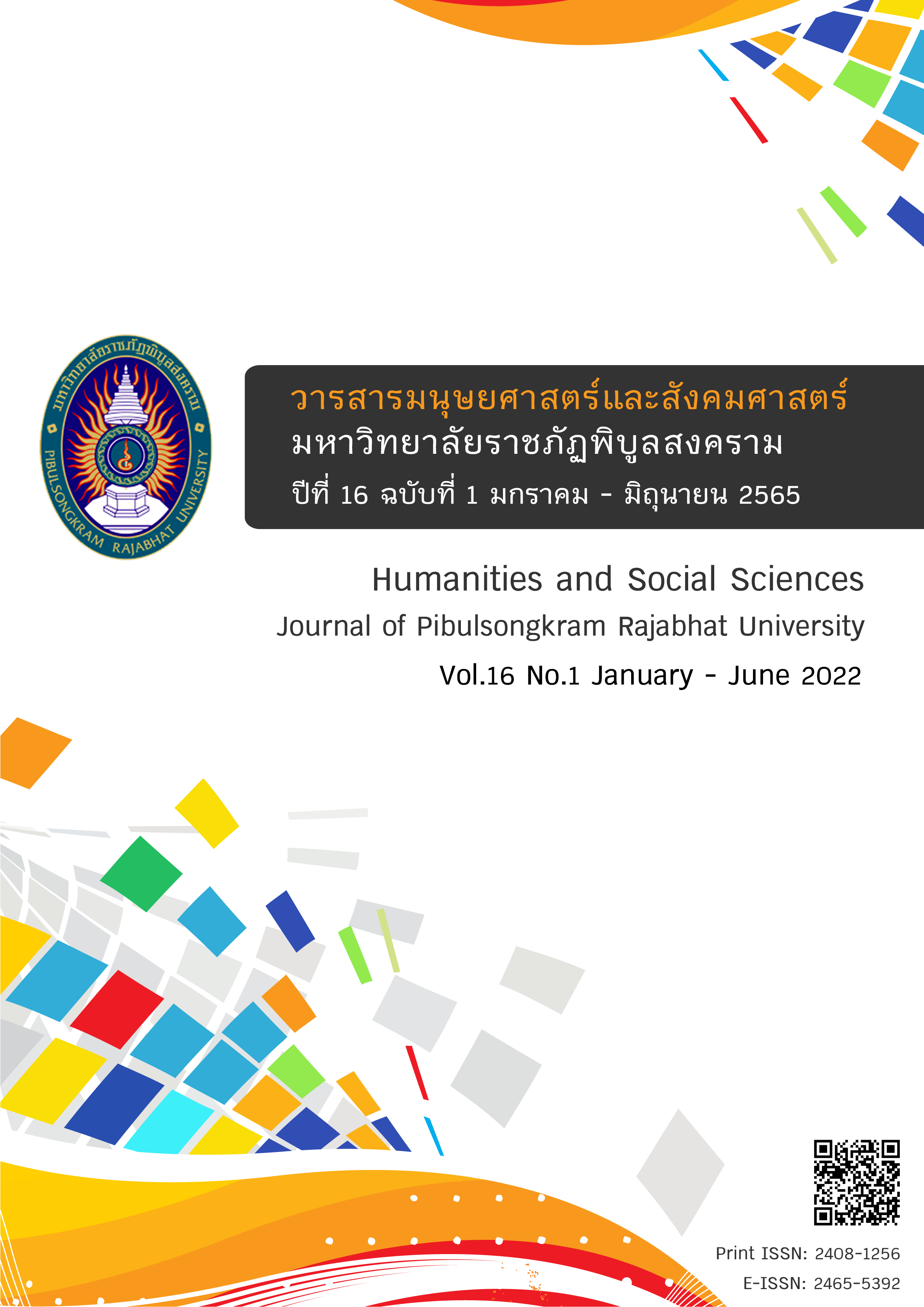Grounded Theory of Principle Leadership: Multi-Cases Studies
DOI:
https://doi.org/10.14456/psruhss.2022.28Keywords:
Grounded theory, Principal leadership, Multidimensional patterns for case studiesAbstract
The purposes of this research were: 1) To study the life history of the model principal of case studies 2) To analyze the leadership characteristics of the school administrators who are the model leaders of the case studies. 3) To compare similarities and differences in leadership of the model principal of case studies 4) In order to build the grounded theory of principal leadership by using qualitative research methods multidimensional patterns for case studies. Focusing on the management behavior of 4 case studies in the lower north part of the region. Using data collection from phenomena, the researchers enter the research field by revealing the true status and role. Introduce oneself to build relationships with the case study. Use observation methods and in-depth interviews. By using the semi-structured interview form and the field record in both interviews, case studies and those close to them were interviewed. Then analyzed with the method of classification or grouping the data, comparative analysis of events, analyze inductive summary and content analysis. Then build the grounded theory with 5 steps as follows: 1) Identify relevant concepts 2) Definition of concepts 3) Create a proposal 4) Rank the relationship between the proposals 5) Create a diagram of the theory The results of this research are founding the leadership theory of principal as follows: “Leadership of school administrators In the performance of 4 areas (academic, budget, personnel and general administration), demonstrated by the leadership of the school administrators by acting as a self-sufficient, responsible, diligent, model, knowledgeable, sincere, understandable, in heart, ready to give opportunities. Build the power of participation, fusing networks, using technology, being fair, leading over leaders. Affecting the quality of the higher educational institutions, including raising the level of academic standards .Operations are transparent, ready for audits. Provide opportunities for personnel to receive continuous progress. Aiming to provide good service , clean, safe, love and care for students like children. Allowing students to find their own paths”.
References
ชนากานต์ ไชยวรรณ์, และสุทธิพร บุญส่ง. (2554). ความสัมพันธ์ระหว่างภาวะผู้นำการเปลี่ยนแปลง กับการบริหารการศึกษาในรูปแบบการใช้โรงเรียนเป็นฐานของสถานศึกษาสังกัดสำนักงานเขตพื้นที่การศึกษานครนายก (วิทยานิพนธ์ปริญญามหาบัณฑิต). กรุงเทพฯ: มหาวิทยาลัยเทคโนโลยีราชมงคลธัญบุรี.
บุญญาภา แจงสี. (2544). การศึกษาเปรียบเทียบรูปแบบการอบรมเลี้ยงดูที่มีผลต่อความผูกพันใกล้ชิด การเห็นคุณค่าในตนเอง และการยอมรับตนเอง ของนักศึกษาที่มีพฤติกรรมเสี่ยง และไม่เสี่ยง ของสถาบันเทคโนโลยีราชมงคล วิทยาเขตพระนครใต้ (วิทยานิพนธ์ปริญญามหาบัณฑิต). กรุงเทพฯ: มหาวิทยาลัยรามคำแหง.
พูลสุข หิงคานนท์. (2554). ภาวะผู้นำทางการพยาบาล. พิษณุโลก: ดาวเงินการพิมพ์.
รัตนะ บัวสนธ์. (2551). วิจัยเชิงคุณภาพทางการศึกษา. กรุงเทพฯ: คำสมัย.
รัตนะ บัวสนธ์. (2552). ปรัชญาวิจัยเชิงคุณภาพทางการศึกษา (พิมพ์ครั้งที่ 2). กรุงเทพฯ: จุฬาลงกรณ์มหาวิทยาลัย.
ศศิรดา แพงไทย. (2559). บทบาทของผู้บริหารสถานศึกษาในศตวรรษที่ 21. วารสารวิทยาลัยบัณฑิตเอเซีย, 6(1), 10-11.
สมคิด สกุลสถาปัตย์, และประเสริฐ อินทร์รักษ์. (2552). รูปแบบภาวะผู้นำการเปลี่ยนแปลงที่มีประสิทธิผลในการปฏิรูปการศึกษาแบบยั่งยืน. วารสารการบริหารการศึกษา มหาวิทยาลัยศิลปากร, 1(1), 21-31.
อุดม คชินทร. (2561). ข่าวที่ 203/2561 มทร.ตะวันออก จัดอบรมให้ความรู้ความเข้าใจเพื่อสร้าง "บัณฑิตพันธุ์ใหม่" สู่มหาวิทยาลัย 4.0. สืบค้น 6 กันยายน 2562, จาก https://www.moe.go.th/websm/2018/2/203.html
Gibson, J. L., Ivancevich, J. M., Donnelly, J. H., Konopaske, R. (2011). Organization behavior, structure, processes (14th ed.). New York: McGraw-Hill.
Hull, C. L. (1952). A behavior system; an introduction to behavior theory concerning the individual organism. U.S.A.: Yale University.
Maslow, A. H. (1981). Motivation and personality. New Delhi: Prabhat Prakashan.
Meador, D. (2016). The Role of the Principal in Schools. Retrieved September 6, 2019, from https://www.thoughtco.com/role-of-principal-in-schools-3194583.
Miller, G. (1951). Language and communication. New York: McGraw-Hill.
Spencer, L. M., & Spencer, P. S. M. (2008). Competence at Work models for superior performance. New York: John Wiley & Sons.
Downloads
Published
How to Cite
Issue
Section
License
Copyright (c) 2021 Humanities and Social Sciences Journal of Pibulsongkram Rajabhat University

This work is licensed under a Creative Commons Attribution-NonCommercial-NoDerivatives 4.0 International License.
Any articles or comments appearing in the Journal of Humanities and Social Sciences, Rajabhat Phibulsongkram University, are the intellectual property of the authors, and do not necessarily reflect the views of the editorial board. Published articles are copyrighted by the Journal of Humanities and Social Sciences, Rajabhat Phibulsongkram University.









